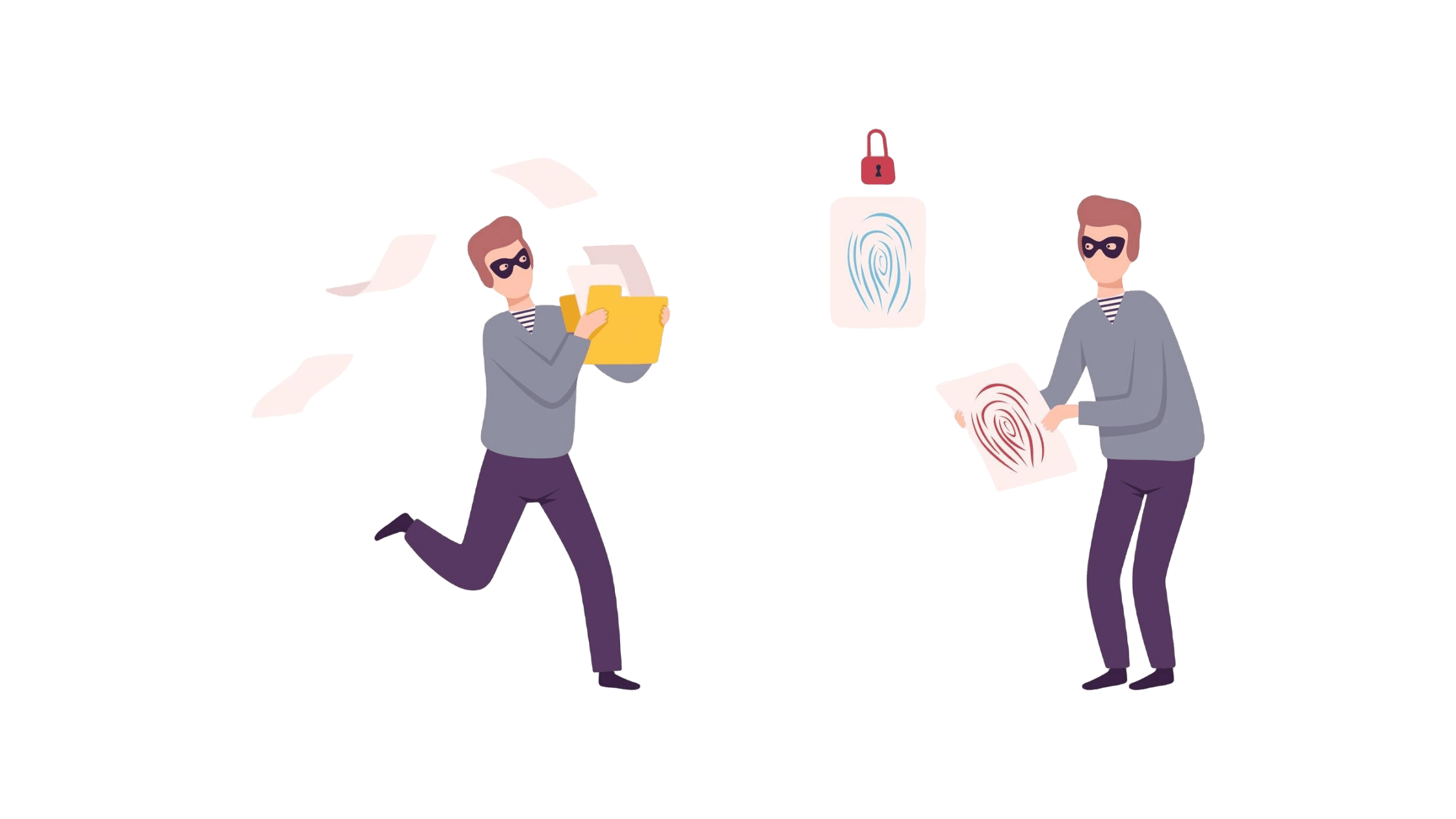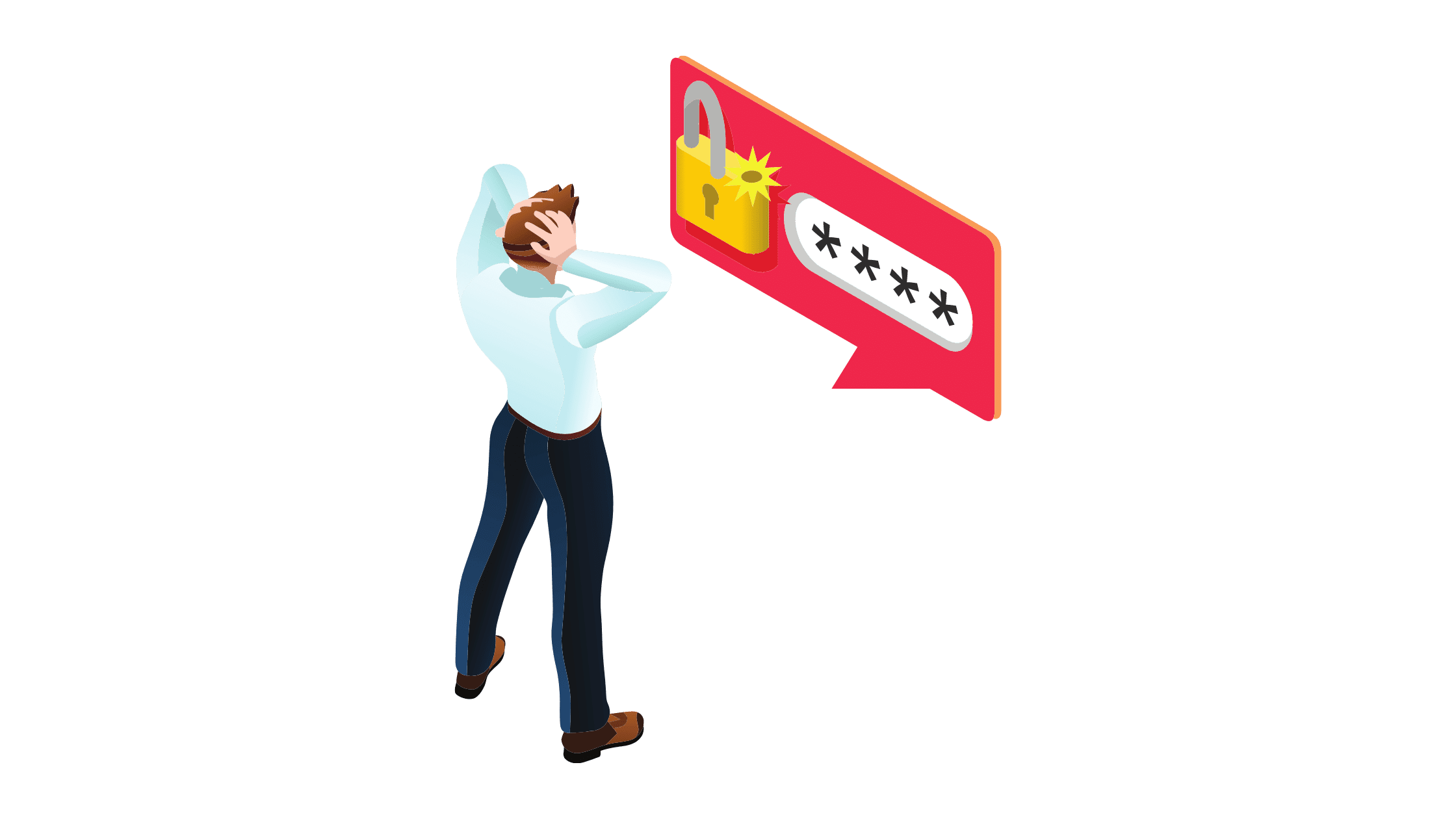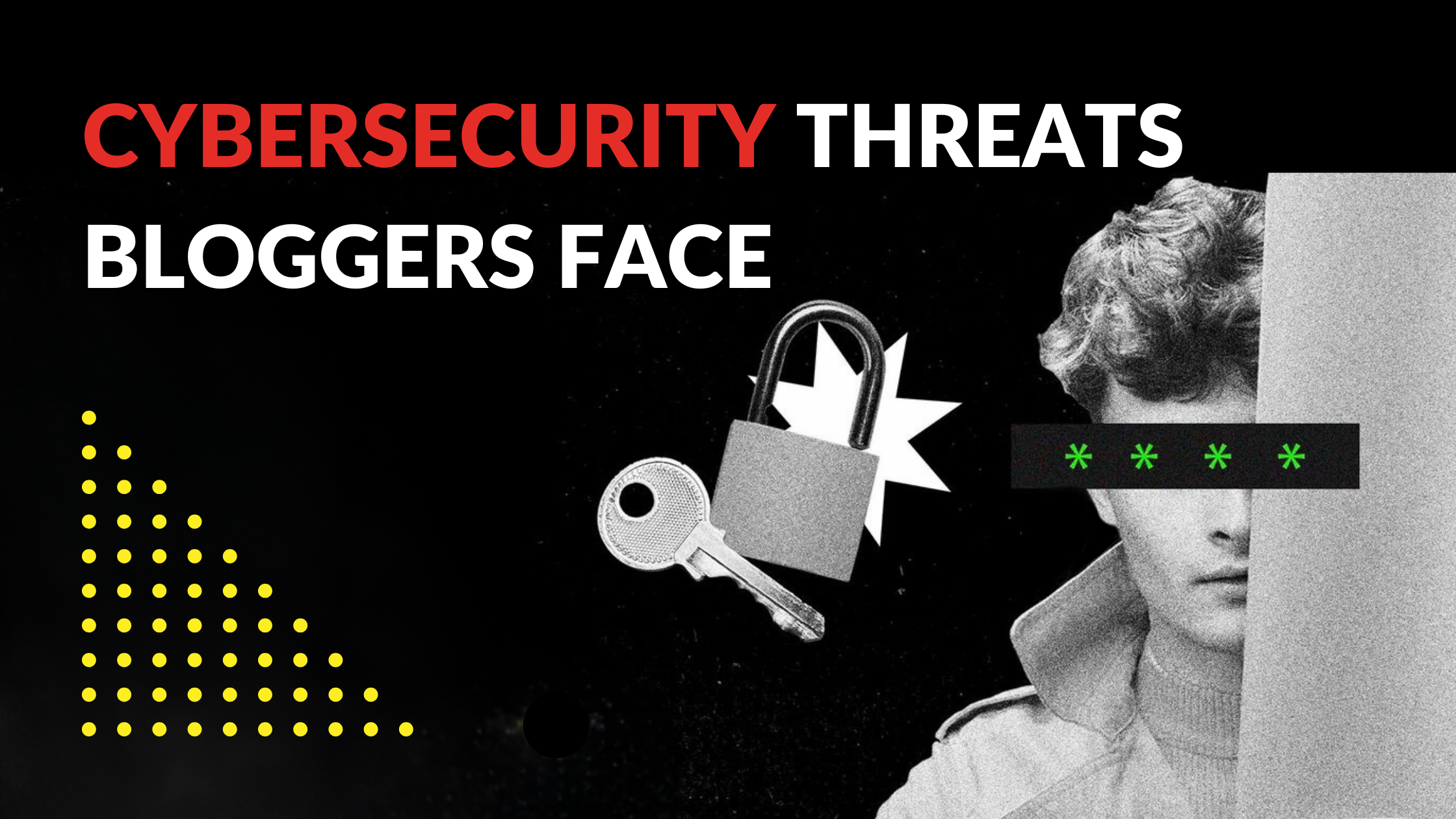Cybersecurity Threats Bloggers Face

Written by Casey Botticello
Disclosure: Some of the links below are affiliate links, meaning that at no additional cost to you, I will receive a commission if you click through and make a purchase. Read our full affiliate disclosure here.
Who would you say has a bigger chance of drowning: a person working as a cab driver or someone working as a sailor or a lifeguard? Would you agree that a construction worker is exposed to a greater falling risk than an office worker? Lastly, who would you say is more likely to cut themselves in their line of work: a teacher or a butcher?
Every occupation brings unique hazards, and by following that logic, it’s not hard to see why a blogger would be more exposed to various cybersecurity threats. Here are six such threats that bloggers risk exposing themselves to by not taking their cybersecurity seriously enough.
1. Phishing Attacks

You see, bloggers are often bombarded with emails, especially from readers, collaborators, and brands. This high volume of communication makes them prime targets for phishing attempts. Moreover, hackers know that a blogger’s inbox holds valuable information, making them far more attractive to scam artists than the average user.
In addition to handling sensitive content, bloggers usually store personal and financial information, sometimes for partnerships or monetization. Hackers find these details irresistible. Bloggers also often share links, which might seem routine but can open the door to malicious intent if not carefully vetted.
Antivirus software might be your best friend when it comes to flagging potentially harmful sites. However, this can be a double-edged sword. Sometimes, it restricts access to useful websites mislabeled as threats. The key here is to recognize when to trust your antivirus and when to proceed cautiously. So, it’s in your interest to find the best antivirus software you can find.
You don’t have to be a cybersecurity expert, but a little extra caution goes a long way. Always double-check suspicious emails and links, especially when they promise something too good to be true. It’s always better to err on caution than to deal with the fallout.
2. Malware Infection

Bloggers often rely on plugins or external tools to enhance their sites, but not all are safe. Downloading from untrusted sources can lead to malware sneaking into your system. It’s crucial to vet software and plugins carefully before installing them on your devices.
While researching content, it’s easy to stumble upon a less-than-safe website. Not all sources are reputable; some might carry hidden threats like malware. Always stick to trusted sources and keep your antivirus updated. Research might be part of the job, but protecting your device should come first.
Even if you have antivirus software, it won’t do you much good if it’s outdated. Cyber threats evolve; without regular updates, your antivirus might not recognize the latest malware. Make sure to keep your defenses strong with regular updates – it’s one of the simplest ways to stay protected.
One major threat bloggers face is malware corrupting or even stealing their content. Imagine working on a post for days only to have it vanish or get hijacked by hackers. Protecting your work is essential, and taking cybersecurity seriously can prevent these headaches.
3. Data Breaches

When you store information (whether it’s personal details, contacts, or financial data) without encryption, it’s like leaving your front door unlocked. This could affect anything from client data to the data regarding your team (regardless of their role). Encryption adds a layer of protection that makes it much harder for hackers to access your data. It’s one of the simplest yet most effective precautions to take.
We’ve all reused the same password for multiple accounts at one point. However, this habit can lead to serious problems. If one account gets compromised, hackers can easily gain access to others. A strong, unique password for each platform can prevent these breaches from snowballing into a bigger issue.
Two-factor authentication (2FA) is a simple yet powerful tool that adds an extra layer of security to your accounts. Without it, your blog is more vulnerable to unauthorized access. Implementing 2FA can make a huge difference in safeguarding your data, especially with other security measures.
Without proper security, hackers can easily access your blog accounts, personal data, or even financial information. Once they’re in, they can wreak havoc, from stealing content to demanding a ransom. Staying vigilant and using the right security tools can prevent this nightmare.
4. Ransomeware Attacks

Ransomware is a nasty type of malware that can lock you out of your blog until you pay a ransom. The worst part? Even after paying, there’s no guarantee you’ll get access back. In 2024, roughly 65% of financial organizations worldwide reported experiencing a ransomware attack, and you’ll see exactly how serious the situation is.
It’s far better to take preventative steps, like backing up your data and strengthening your security measures.
Bloggers who earn income from their platforms are particularly attractive to ransomware attackers. These hackers know that bloggers rely on their content for revenue, and locking them out can be devastating. Being more focused on your cybersecurity is a small price to pay to protect your livelihood.
If you don’t have a secure backup of your blog, recovering from a ransomware attack can be nearly impossible. The process can be long and frustrating, even if you manage to get your content back. Regularly backing up your blog is one of the easiest ways to protect your hard work.
One of the biggest misconceptions about ransomware is that paying the ransom will solve the problem. Unfortunately, this isn’t always the case. Hackers may take your money and disappear without restoring your access. The better approach is prevention through strong cybersecurity practices and regular backup.
5. Social Engineering

Social engineering attacks often involve hackers posing as trusted contacts, like collaborators or well-known brands. Bloggers who are constantly communicating with others online are especially vulnerable. It’s important to be wary of unsolicited messages and double-check the authenticity of any requests before sharing sensitive information.
Bloggers frequently receive partnership offers, but not all of them are legitimate. Some are elaborate scams designed to trick you into giving away personal information or access to your blog. Always research potential partners thoroughly to ensure they’re legitimate before collaborating.
One of the scariest things about social engineering is that victims often willingly give away sensitive information, thinking they’re helping someone they trust. Bloggers, in particular, need to be cautious about sharing passwords, financial details, or access to their platforms, even if the request seems legitimate.
Bloggers who aren’t well-versed in cybersecurity are easier targets for social engineering attacks. Hackers prey on their lack of knowledge, knowing they can manipulate victims into making mistakes. The more familiar you are with cybersecurity threats, the less likely you are to fall victim to these tricks.
Conclusion
As a blogger, you’re using more plugins, downloading more files, and clicking on more emails daily. In other words, you’re exposed to more threats, and you engage in more activities that could result in a cybersecurity breach. This is why it’s so important that you become more proactive regarding your cybersecurity.
